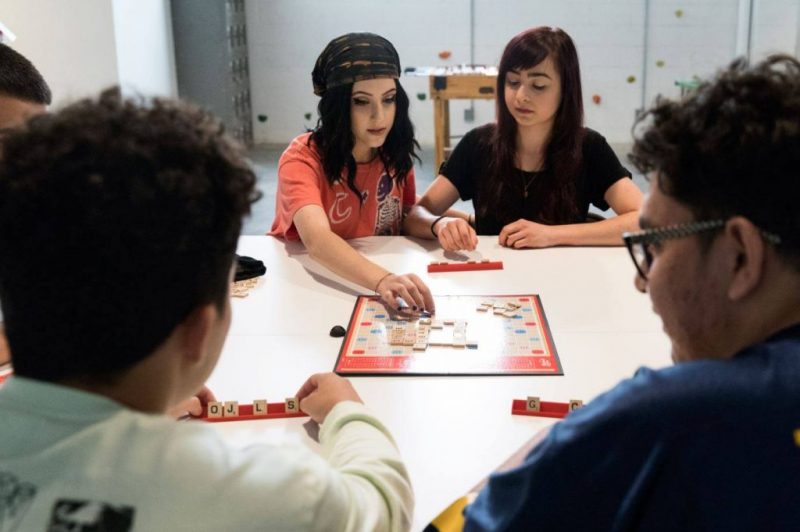Being There For Your Kid When They Are Bullied | Teen Support Groups
Bullying is the deliberate harming of another person with the purpose of intimidating them. It is used to dominate, threaten, and control someone else, and it is very dangerous. It is reported that 30% of teenagers in the US have been bullied. These attacks, whether in the physical realm or in cyberspace, occur over a duration of time, gradually withering the mental health of their recipients. Teen support groups are a great way to create a comfortable environment to further open up and explore this dialogue. However, as a parent, it helps to educate yourself on the matter outside of where these discussions are taking place.
Understanding the Bully
Culprits of bullying tend to have similarities and patterns. Girls usually verbally and emotionally abuse whereas boys usually physically abuse or threaten to abuse. The majority of targets of abusers are people or groups cast as “other”. This can include preying on people of a different race, religion, or sexuality. Kids with disabilities and high achievers also fall victim to bullies.

Most often, the person doing the bullying is struggling with personal issues and is unable to cope with their emotions. They then project their fears and insecurities onto others that seem weaker, those who make them jealous, and those who can be a reminder of their issue. A violator usually suffers from self-esteem issues, craves attention to feel accepted, desires to maintain their popularity status, and lacks empathy skills.
Common Bullying Tactics
- Taunting
- Stealing belongings
- Name-calling
- Inflicting or threatening physical harm
- Humiliation
- Hazing
- Sabotaging relationships and opportunities
- Spreading rumors
- Threats
- Sextortion
- Exposing secrets
- Sexual gossip
The Effects of Bullying
More than likely, your teen will not disclose that they are being harassed by peers because they feel ashamed. And, unless adults or your teen’s friends intervene, you might only learn that your kid is being bullied if you notice the clues. Signs to look out for include change in mood or behavior, avoiding activities or locations, withdrawal from friends and family, sudden decline in performance, hypervigilance, stress when using cell phones or computer, and acting secretive or reclusive.
If you suspect your child is dealing with bullying, it is important to address it as it can have long-term effects on your child. Teens that suffer from intimidation can develop anxiety and depression, suffer from low self-worth, feel lonely and afraid, intrigue the idea of suicide, sacrifice academics to avoid conflict, and use drugs and alcohol to numb out the pain of bullying. Pushed to their limits, bullied teens can even retaliate by becoming violent towards their tormentors and bystanders–ranging from physically fighting their bully to mass murder.
How to Help
Once you become aware that your child is being bullied, you can help support them through this difficult situation.
- To start the process of intervention, connect with your teen. Check in to hear how they are feeling without pressuring too much information out of them.
- Let them reveal what is going on as they confide in you.
- Reassure your teen that the bullying is not their fault and that they should not be ashamed of themselves–their uniqueness is something to embrace and celebrate.
- Bring awareness to the fact that their attacker is unable to handle their own feelings or issues and most likely want others to feel as bad as they do.
- Talk with your kid’s bully’s caregivers, teachers, counselors, coach, or other adults that may witness the interactions between your teen and their abuser so that they can at the least, mediate in the physical space.
- Suggest to your teen that they unplug from their phones for several hours a day to give their mental health a break. If cyberbullying gets out of hand, suggest they delete social media accounts.
- Recommend therapy so that your kid feels safe to talk about the bullying if they do not feel totally comfortable talking about it with you. You can also recommend teen group therapy for peer support and new friendships.
- Bond with your teen, and include friends, to encourage self-love and worthiness. Do exercise activities with your teen, engage in fun projects together, attend faith services or spiritual events in a group, or have regular family nights.
- Advocate for healing the mind-body-soul. Learn mindfulness meditation, breathing techniques, and conscious movement with your teen.
You may not be able to stop your teen from being bullied but you can help empower them to respond to aggression from a place of understanding and to redirect their attention at their own wellbeing.
For more information on teen group therapy, call Insight Treatment at (888) 295-9995.
References:
https://www.helpguide.org/articles/abuse/bullying-and-cyberbullying.htm
http://www.bullyingstatistics.org/content/teenage-bullying.html

